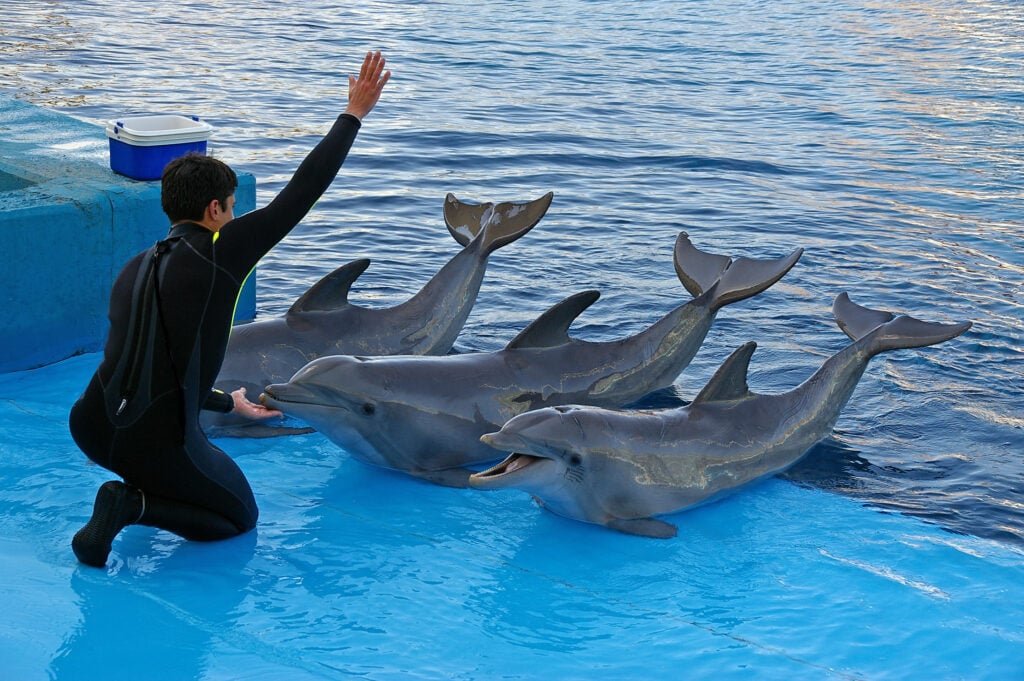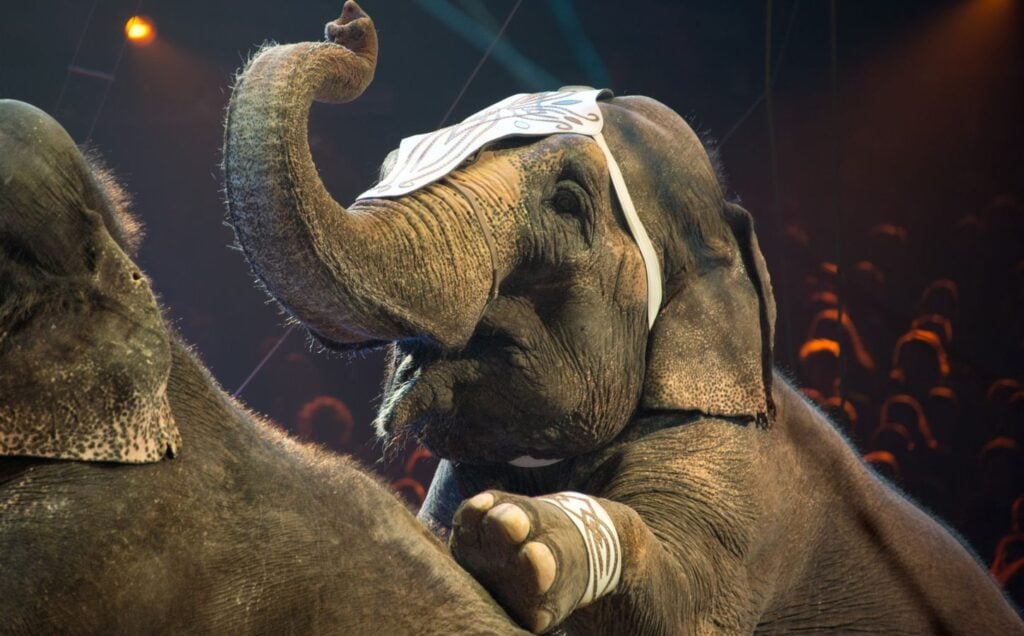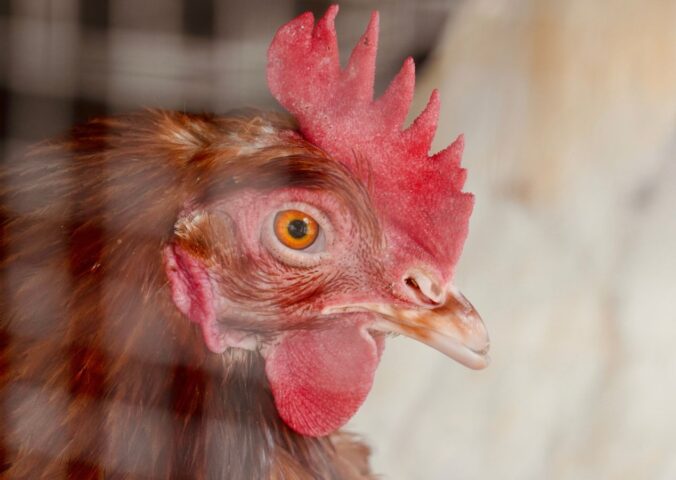Hong Kong-based travel company Klook has announced that it will be cutting ties with circuses that use wild animals, as well as a number of other exploitative “attractions”. It will still, however, sell tickets to “elephant experiences” and some other animal businesses.
It published a new animal welfare policy that outlined a commitment to not sell trips to places that incorporate “performances” from wild animals like tigers, elephants, whales, and dolphins. Businesses like “tiger temples,” which see animals be sedated for photo opportunities, will also be prohibited. Trophy hunting and blood sports also come under the new guidelines, as well as experiences involving the consumption or sale of wild animals.
While the company has cut ties with a few animal excursions, some zoos, aquariums, and “elephant experiences” will be allowed. Such businesses are well-documented to come with significant ethical costs. Campaigners have urged Klook to move completely away from animals.
“We applaud Klook’s new animal welfare policy for taking a meaningful first step in helping to end wildlife cruelty and exploitation in the tourism industry. However, Klook must go further,” said Nicole Barrantes, Wildlife Campaign Manager at World Animal Protection in the US, in a statement. “It must remove all wildlife attractions, including its elephant bathing and feeding offerings, which still involve significant cruelty behind the scenes.”
Animal businesses fall out of favor

Klook is one of many travel companies to have cut ties with animal performance businesses in recent years. UK-based Thomas Cook hit headlines in 2018 after stopping excursions to SeaWorld, while Virgin made a similar move the following year.
Businesses that exploit wild animals are becoming increasingly controversial among the general public. Since the release of documentary film Blackfish in 2013, which documented the plight of captive orcas, there has been growing concern about the ethics of businesses that rely on wild animal shows.
Some marine parks have made small steps to reduce the numbers of animals they keep, and SeaWorld committed to stop breeding orcas in 2016 amid growing public backlash. The company is, however, continuing to keep a number of captive animals at their sites, despite the significant controversy surrounding the practice.
But circuses, in particular, have made significant strides to stop using animals in their shows. The Ringling Bros. and Barnum & Bailey Circus has also removed wild animals from performances, and now relies solely on human performances.
Sharon Shrine Circus is among the last remaining circuses to still use wild animals. The company is the subject of a new campaign from PETA calling for the removal of animals like elephants in its shows as it returns to Texas next month.
“Animals have every bit as much right to a real life as any Shriner, but they’re forced to perform stressful tricks in front of noisy crowds in Shrine circus shows,” said PETA Executive Vice President Tracy Reiman in a statement. “This is 2023, not 1923, and PETA is calling on Sharon Shriners to fall in line with numerous other Shrines by showcasing human performers and ditching the animal acts.”
Plant Based News updated this article on September 29, 2023, to clarify in the first paragraph that Klook is still selling tickets to some animal businesses.






